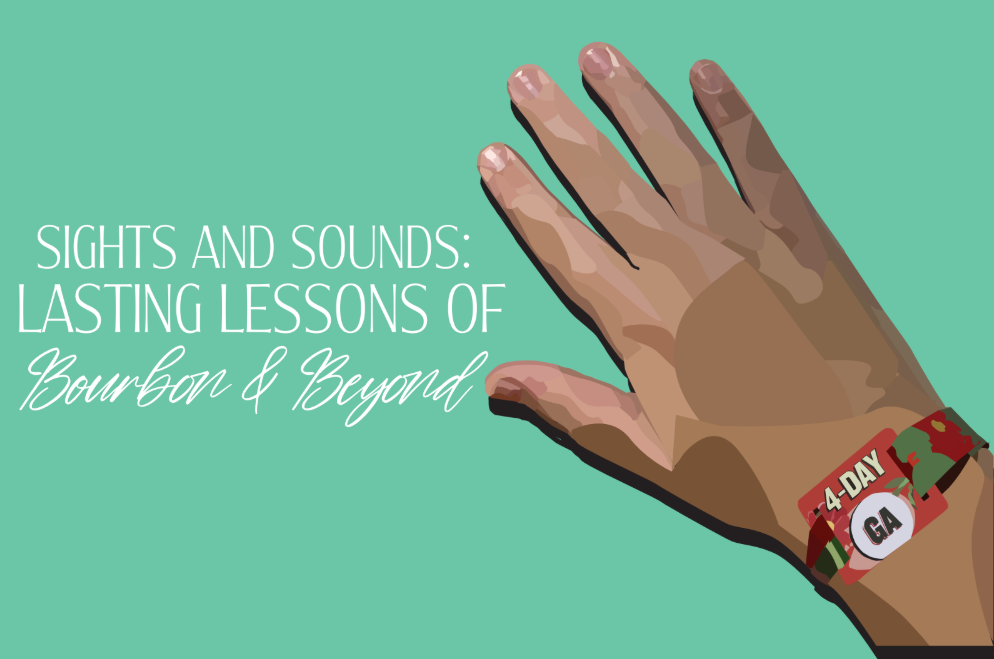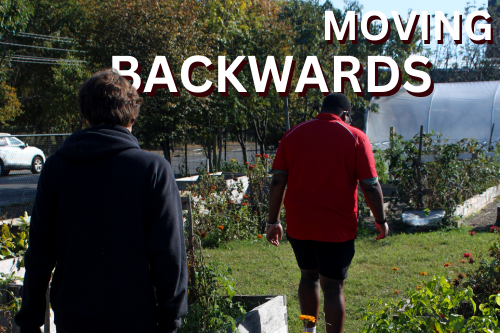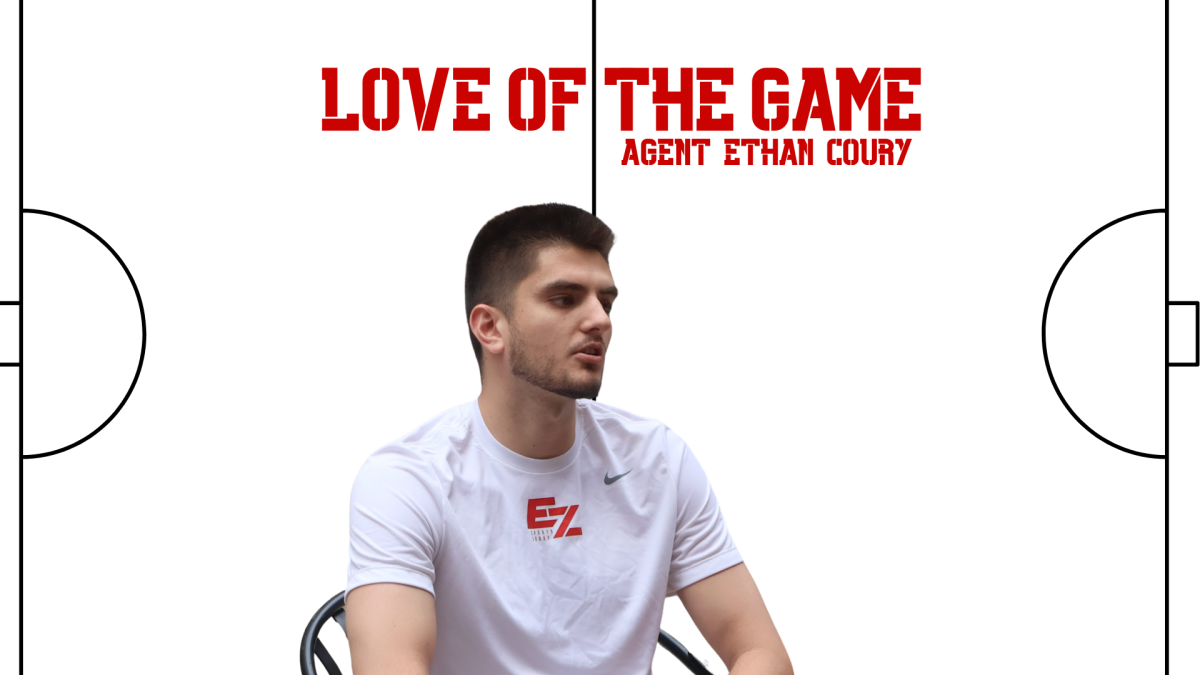Words by Ali Shackleford and Olivia Brotzge
She watched the big hand tick minute by minute until the little hand finally moved one notch to the right. It was time. She felt hesitant but ready. She felt scared but brave. Would it hurt? Would it be worth it? Would her mother see her differently? What if it didn’t work?
Her eyes immediately darted off the clock and onto a woman who was calling her name from the far side of the office. She went in, took off her pants and underwear, and laid down on the bed with her legs hanging off, spread apart. Cold, metal stirrups held up her feet.
Bella, whose identity we are protecting with a pseudonym, tried to focus on what the doctor was saying, but the thick clamps in her vagina were distracting. She relaxed, not because her doctor told her to, but because she thought it might help the pain.
“People are typically uncomfortable in the position you’re in, so we’ll go fast. Alright?”
I trust my doctor.
“Now, you might experience some cramping and random bleeding, but if it persists then please…”
I really wish I could put my pants back on.
“It won’t start working for the next week or two, so if you’re going to have sex, make sure to…”
I have a high pain tolerance, but Lindsay said she passed out. What if I pass out?
“Ok. It’s going to hurt kind of like a really bad period cramp so just…”
I’ve never had a bad period cramp.
“Relax.”
Just relax.
“1… 2… 3… ”
Finally.
My IUD
Bella, now 17, was 16 when she got her intrauterine device (IUD), a form of long-term birth control. She spent months researching various forms of birth control and visiting her gynecologist to talk about what was right for her. Her mother, however, did not join the conversation until after Bella had already made the appointment.
Bella’s mother was “sad that she was losing her virginity but proud that she was thinking smart and trying to protect herself from a future pregnancy.”
In any case, Bella was determined.
“I value them letting me and being supportive of it. If they weren’t, then I’m 16, and I can go get it myself,” Bella said.
Bodily integrity is the idea that each and every individual should be able to determine what happens to their own body and how. This idea is present to some degree in many of our legal rights. We see it in laws that make sure that adult are a part of the conversation at their doctor appointments, that adults consent before they go into surgery, and that adults can pierce and ink their skin. However, as far as state and federal laws are concerned, absolute bodily integrity starts at age 18. This makes it possible for adults to override a child’s intentions for their own body.
In 2005, Kentucky law was amended to allow minors 16 and older the right to be examined, diagnosed, and treated for issues, such as sexually-transmitted diseases, alcohol and drug abuse or addiction, contraception, childbirth, and pregnancy, without parental consent or notification.
The catch is that the resulting cost from any of the above operations, unless vital to their health, would fall solely on the minor. Legally,, Bella could have gone through her IUD process alone, but she wouldn’t have had her family’s support to cover the expenses..
Luckily for Bella, her mother eventually approved of her decision. Though she has come to terms with her daughter’s choice, Bella’s mother is not completely sold on the idea of other minors having control over all medical situations.
“You’re not developed mentally or prepared to make those choices at a young age. Hint: why you have parents,” her mother said.
Bella’s mother isn’t the only one who believes this, and the idea that minors do not have the maturity to make difficult, long-term decisions is not without merit. Brain development isn’t always finished by the age of 18. In fact, research by the Massachusetts Institute of Technology’s Young Adult Development Project indicates that the brain can take as long as 25 years to reach full maturity. This is the same reason why 18-year-olds are not allowed to rent a car without a surcharge or drink alcohol. But it can also create the misconception that it takes 25 years for every person to develop maturity and self-restraint.
This isn’t entirely true. Rebecca Babcock, a researcher on neurological development, found that changes in the brain occur at different rates for different people. In other words, there is no blanket age of maturity that applies to everyone.
My Ink
Lucy Kissel dreamed of getting a tattoo of two red flowers to memorialize her nephews that had recently passed away, but there was something stopping her. Lucy was 17–a year away from being able to get tattoos without the consent of a parent. When she asked her parents, they were hesitant to let her get the ink and waited a month to give her their final decision. They agreed to let Lucy get the tattoo, but only because it was a memorial piece and the design was something they liked: not too big, not too gaudy, just flowers.
Lucy’s mother accompanied her to the tattoo parlor, signed the consent form, and sat in the room throughout the process. These measures of parental consent exist to curb minors’ perceived irresponsible tendencies and to make up for their lack of brain development — brain development that adults already have.
What if Lucy had made a snap decision to get the tattoo after seeing a drawing of it on Instagram? What if she had regretted it soon after?
But just as age doesn’t prevent children from making good decisions, it doesn’t necessarily exempt adults from make irresponsible ones, either. After all, teenagers aren’t the only ones who get questionable tattoos.
My Meds
When Sarah, whose identity we are protecting with a pseudonym, was nine years old, she laid down in the middle of oncoming traffic.
Until she was 14, she had trusted her mother’s explanation that it was just in her head and she could get over everything if she stopped being so sad. Now, Sarah knows that she has attention deficit/hyperactivity disorder (ADHD), general anxiety disorder, social anxiety, obsessive compulsive personality disorder (OCPD), and clinical depression.
“At first, I accepted the answer of ‘you’re imagining it’ because she’s my mom, you know?” Sarah said. But until she discovered that what she was feeling not only had a name but a neurological explanation, she felt hopeless. “I knew the extent of how much I was hurting but no one was letting me do anything about it,” she said.
Sarah feels as though her mother is ashamed of all of her mental issues and sees them as a self-reflection or an evaluation of her parenting. She believes her mom is in denial of having a “sad daughter.”
In the beginning, according to Sarah, she went to appointments with her mom, who claimed that her treatment was a success, even if Sarah felt the medicines were not working. Sarah recalls that several times it took two to three months to switch medications because of her mother’s claims that she was getting better.
At 14 years old, Sarah spent a lot of time trying to convince her mother to let her talk with a therapist about how she was feeling. Even today, five months from 18, getting treatment for her mental health is hard. Although Kentucky law states physicians may provide outpatient mental health counseling to children 16 or older without the consent of a parent or guardian, Sarah’s current psychiatrist refuses to see any patient under 18 without one present. The requirement of parental involvement in these situations raises the problem of parents who are not present in their children’s lives and who may not have their best interests in mind, situations that could potentially bar a child from receiving the help they need.
“By the time kids are 15 or 16, they know the difference between right and wrong, and they’re able to make those kind of choices for themselves,” Kissel said.
Research done by Debbie Schachter, a Professor in the Psychiatry Department and Bioethics Centre at the University of Toronto, backs Kissel’s opinion. Schachter hosted a behavioral study where researchers told minors (ages 12-16) and parents about an ADHD treatment so they could decide on their own whether or not the child would take it. The study found that children did just as well as their parents when tested for understanding. So the question remains: If teenagers are just as capable of comprehending medical information as their parents, then why are they not allowed to make decisions for their own bodies?
My Voice
The cases of Bella, Lucy Kissel, and Sarah only emphasize the ambiguity of adolescent autonomy laws. Bella had the advantage of law on her side. Kissel, however, still had to ask permission from her parents to get her tattoo. And Sarah, despite the backing of Kentucky law, continues to struggle to get proper treatment. Though laws now allow for more bodily integrity, their current state still favors adults.
But it doesn’t have to stay that way.
Because minors are not eligible to vote, they can’t change these policies by directly supporting representatives. However, they can take political action in other ways, such as campaigning for representatives in favor of minor’s rights, or putting pressure on elected officials through phone calls and emails. These actions have the potential to allow every child to seek life-changing treatment for themselves, to make responsible choices for their future, or, simply to make the choice to get a tattoo.




















